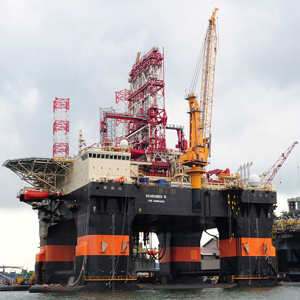As the semi-submersible Scarabeo 9 approaches Cuba to drill five exploratory wells over the next 12 months, the United States should support a prudent environmental stewardship policy with Cuba and be responsible and pragmatic in order to respond effectively to an oil-related accident, which could impact our shared marine environment.
Here are some recommendations:
- The Obama Administration should move to exempt U.S. oil equipment and supply companies from the long-standing embargo against Cuba by providing an industry-wide general license for export, in case of an oil spill in Cuban waters.
- Rapid response oil spill services providers, such as Helix Well Containment Group and Marine Well Containment Company, should be granted licenses to provide emergency services to international oil companies operating in Cuba in the case of an oil spill. Helix and Marine Well Containment are companies that provide a comprehensive and integrated rapid-response system in the case of a major oil spill incident. Their members/shareholders are among the largest operators of deepwater oil and gas drilling in the Gulf of Mexico, including companies such as Repsol, Statoil and ENI.
- Cuba’s national oil company CubaPetróleo (Cupet) should be allowed to join the International Association of Drilling Contractors — IADC — in order to gain experience in deepwater drilling. IADC shares industry health, safety and environmental best practices through conferences, training seminars, and technical publications in areas such as drilling and completion technology, as well as standards, practices, legislation and regulations that provide for safe, efficient and environmentally sound drilling operations.
- The United States and Cuba should begin conversations to develop a joint protocol or an emergency coordination response agreement, such as the one currently in place between the United States, Mexico and Canada. Such an agreement would coordinate emergency services, establish joint response teams, establish rapid incident notification mechanisms, set-up joint operations centers and communication procedures along with regular exercises and meetings.
Cuba is in the process of creating the drilling regulations necessary to ensure the safe and environmentally responsible development of their deep-water oil and natural gas resources within their EEZ.
The depth and experience of the international oil companies operating in Cuba and the advanced technology of the drilling equipment underscores the level of commitment by all to our shared environment.
Now we need to be sure that Cuba has the resources and training needed to enforce the regulations and international standards in order to attain their goal of no accidents, no harm to people, and no damage to the environment.
Jorge R. Piñón was president of Amoco Corporate Development Company Latin America from 1991 to 1994; in this role he was responsible for managing the business relationship between Amoco Corp. and regional state oil companies, energy ministries and energy regulatory agencies.


